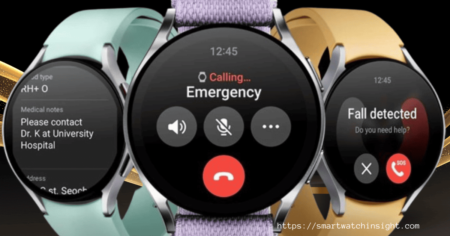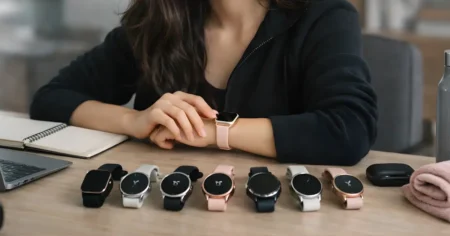Stop scrolling through endless specs! Trying to choose between the Inspire 3, Charge 6, Versa 4, Sense 2, and the new Pixel Watch 3 feels like an impossible task. You don’t need a spreadsheet—you need clarity.
Here’s the essential, time-saving truth: Google owns Fitbit, and in 2026, they are only focused on two things: the flagship Pixel Watch and their core Charge/Inspire fitness trackers. If you were waiting for a new Versa or Sense,you need to read this first.
We cut through the noise, detailing what each device does best, who it’s for, and—critically—what Google’s ownership means for your long-term privacy and feature roadmap.
Latest prices + offers: Before you buy, check the current Fitbit deals for Amazon discounts and sales.
The Status of Versa 4 and Sense 2
The Versa 4 and Sense 2 remain solid, feature-rich devices, but it is essential to understand their position in Google’s long-term plan.
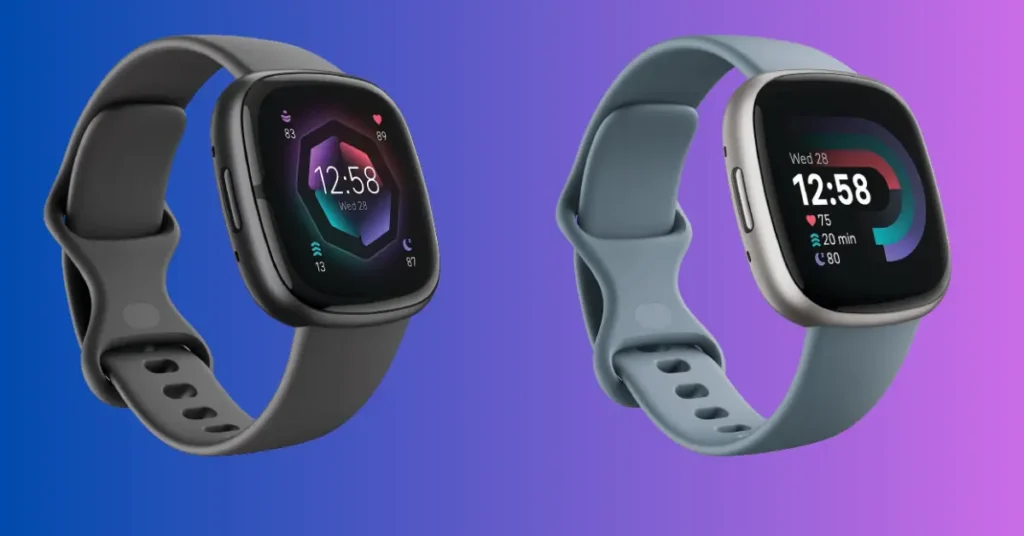
To avoid direct competition with the flagship Pixel Watch 3, Google has shifted its major development resources away from the Versa/Sense smartwatch line.
While Google has confirmed new Fitbit hardware is coming in 2026 (widely expected to focus on dedicated fitness trackers like the Charge and Inspire)
If you want a clearer picture of how these two watches perform side by side, check out my full comparison guide: Fitbit Sense 2 vs Versa 4.
Why focus on these models in 2026?
| Model | Built-in GPS | Key Health Tools | Battery Life | Best For |
|---|---|---|---|---|
| Inspire 3 | No | Steps, HR, sleep, stress, AZM | Up to 10 days | Beginners, walkers, general fitness |
| Charge 6 | Yes | HR zones, VO2 max score, SpO2, temp | Up to 7 days | Runners, gym users, all-rounders |
| Versa 4 | Yes | HR, sleep, stress basics, notifications | Multi-day | Style fans, smartwatch basics |
| Sense 2 | Yes | ECG, EDA, SpO2, HRV, temp | About 6 days | Wellness and recovery insights |
| Pixel Watch 3 | Yes | ECG, HR, SpO2, Fitbit tracking in Wear OS | About 24 hours | Full smartwatch experience for Android users |
Fitbit Inspire 3: The affordable starter
If you want a simple fitness tracker that stays out of the way, the Fitbit Inspire 3 is the best budget Fitbit model.
It tracks steps and distance, heart rate monitor, sleep tracking, stress, and Active Zone Minutes, and the battery life can stretch up to 10 days.
It does not have built-in GPS, so for accurate outdoor distance on walks or runs, bring your phone.
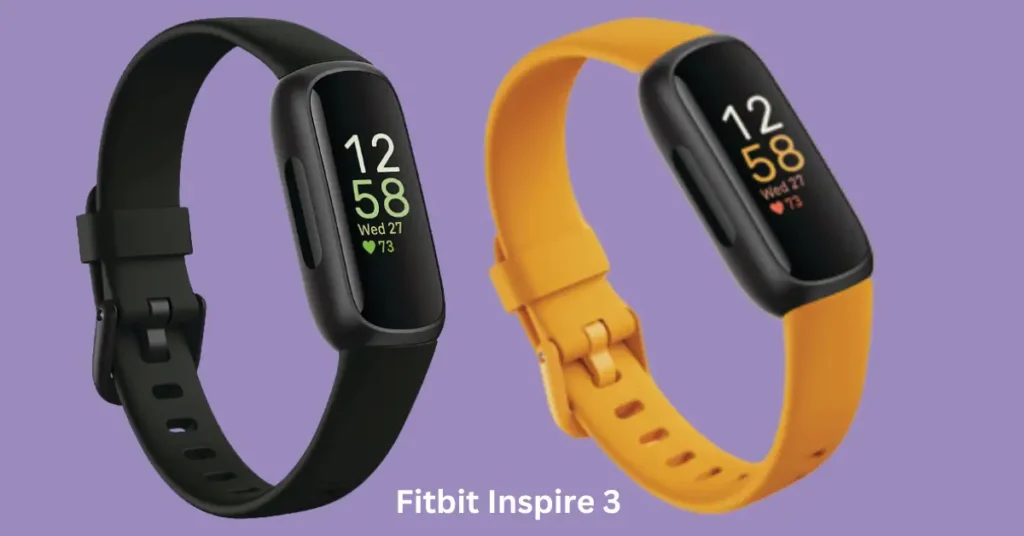
However, it excels in providing a clean, distraction-free experience and solid tracking basics for movement, rest, and stress.
This is the Best Fitbit for beginners, walkers, and anyone who wants lightweight fitness support without constant smart features. The device is small, comfortable, and pairs easily with the Fitbit app.
Pros:
- Long battery life and a clean, distraction-free experience
- Solid tracking basics for movement, rest, and stress
Cons:
- Relies on your phone for GPS accuracy outdoors
Everyday tracking basics
- Steps and distance keep you moving by showing daily progress.
- Sleep tracking helps you spot patterns so you can wake up ready.
- Stress tracking reminds you to slow down when your body needs it.
Battery and compatibility
The standout is 10 days of power between charges. It works with both Android and iOS. Great for:
- Walking and casual runs with your phone nearby
- Light workouts and daily wear
- Users who value comfort and simplicity
Helpful reminder: no built-in GPS means your phone handles outdoor mapping.
Fitbit Charge 6: The well-rounded powerhouse
The Fitbit Charge 6 is my personal favorite and the most well-rounded best fitness tracker for most people.
It adds features like built-in GPS for accurate outdoor distance, heart rate zone training, Google Wallet, Google Maps, and YouTube Music controls.
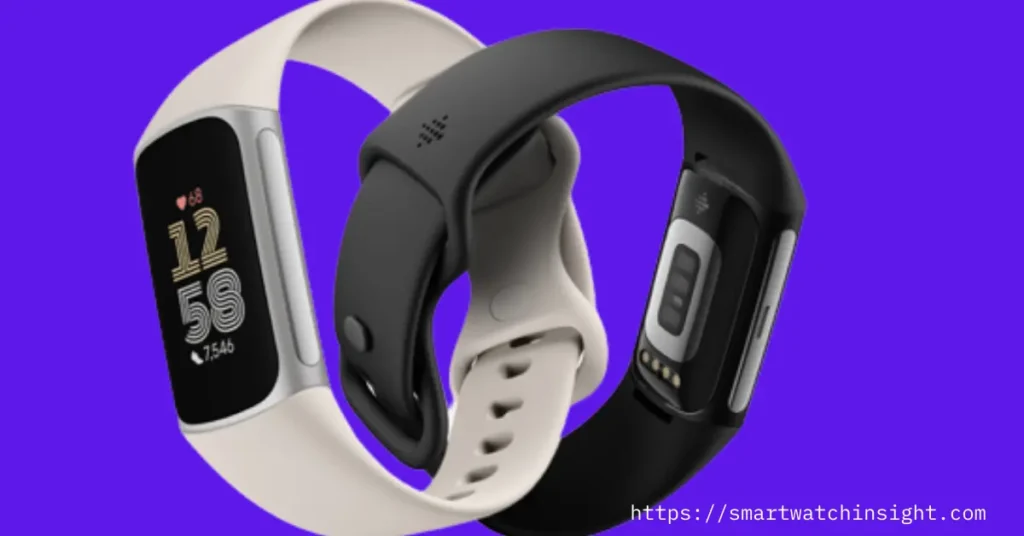
You also get a cardio fitness score based on VO2 max, plus SpO2 and skin temperature. It can sync to supported gym equipment. With all that, battery life lasts up to 7 days.
This is ideal for runners, gym users, and weekend warriors who want fundamental training tools without a full smartwatch experience.
Pros:
- Built-in GPS at a great price
- Excellent balance of health and convenience features
- Compact design that still feels premium
Cons:
- Shorter battery life than Inspire 3 due to more sensors and apps
- Need Fitbit premium subscription for advance tools
Advanced fitness tools
- Built-in GPS for accurate outdoor tracking without your phone
- Heart rate zones and a VO2 max-based fitness score for real training insights
- SpO2 and skin temperature sensing for added context around recovery and sleep
- Gym equipment sync for supported machines
- Convenience extras:
- Google Wallet for quick payments
- Google Maps and YouTube Music controls for navigation and tunes on the move
Who benefits most from daily use
If you track runs, strength sessions, or guided workouts, this is a sweet spot. It works with Android and iOS, and it stays focused on fitness first.
Comparison snapshot:- Inspire 3 vs Charge 6: GPS, yes/no; battery life, 10 vs 7 days; payments and Maps, no vs yes.
Get a closer look at real-world performance, accuracy, and battery life in my full hands-on review: Fitbit Charge 6 Review.
Fitbit Versa 4: Best Fitbit Smartwatch on a Budget
Want the Fitbit smartwatch look without deep medical tools? The Versa 4 gives you notifications, a voice assistant, Google Pay support, built-in GPS, and full workout and sleep tracking, all in a clean, comfortable package.
It skips advanced diagnostics like ECG and EDA stress scanning. This is Best Fitbit smartwatch for fans who care about steps, sleep, and heart rate, and prefer a stylish watch face.
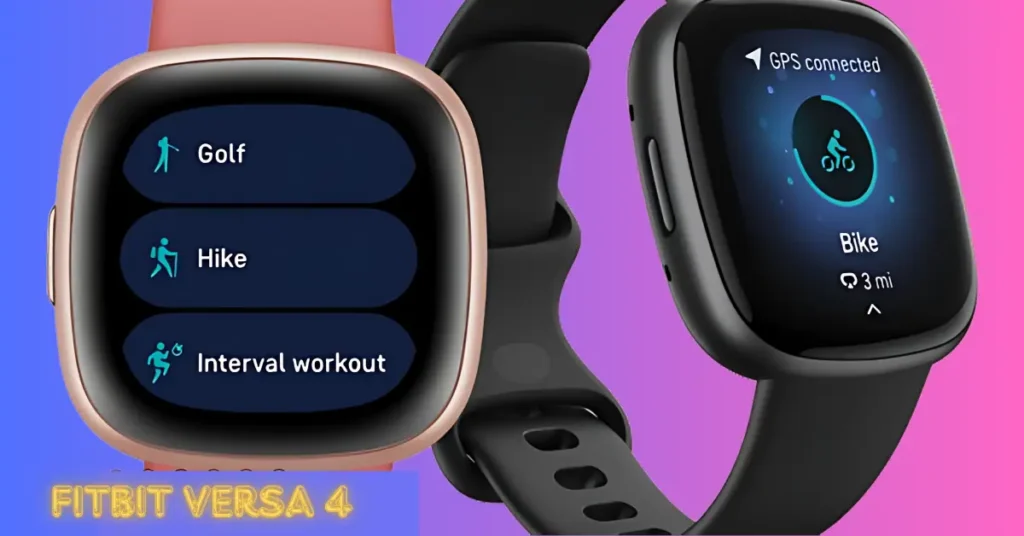
Pros:
- Lower cost than Sense 2 with a similar watch design
- Solid smart features for daily life
Cons:
- No ECG or deep stress analysis, which some users want
- If you just wish for fitness and GPS, the Fitbit Charge 6 may be a better value
Smart features without the overload
- Notifications and quick replies
- Voice assistant for hands-free actions
- Google Pay support via the newer Google Wallet
- Built-in GPS for outdoor workouts without your phone
Ideal users and limitations
Great for style-focused users who want a lightweight design and everyday fitness. Skip it if you wish to have advanced health and fitness features.
If you want long-term, real-world insights before deciding, my 60-day hands-on report covers everything in detail: Fitbit Versa 4 Review – 24/7, 60 Days Insights.
Fitbit Sense 2: Deep health and wellness focus
The Fitbit Sense 2 is Fitbit’s most health-focused fitness tracker in a smartwatch body.
It includes everything you’d get from the Charge 6, plus ECG for heart rhythm checks, EDA for stress management, skin temperature, SpO2, and heart rate variability.
Expect about 6 days of battery life.

This is ideal for people who want the best Fitbit Fitness trackers with detailed stress, recovery, and sleep tracking insights all in one device.
You can also export data to share with a medical professional if a condition is flagged.
Pros:
- Serious wellness data in one watch
- Strong blend of fitness and recovery tools
Cons:
- Battery life takes a small hit due to extra sensors
Advanced sensors explained
- ECG: On-wrist rhythm checks for heart health context.
- EDA sensor: Tracks stress response and prompts you to reset.
- SpO2 and HRV: Added signals for sleep quality and training readiness.
Best for recovery and medical insights
If you monitor energy, stress, or chronic conditions, Sense 2 gives you detailed patterns and history—plan for a 6-day battery in everyday use.
Still debating between the Sense 2 and Versa 4? My comparison guide shows exactly how they differ in real everyday use: Fitbit Sense 2 vs Versa 4.
Google Pixel Watch 3: The premium smartwatch choice
The Watch 3 is Google’s premium smartwatch, and Fitbit tracking is built in.
You get a beautiful AMOLED display, Google Assistant, Gmail, Calendar, Google Wallet, Google Maps, ECG, heart rate tracking, SpO2, steps, and sleep tracking.
There’s an optional LTE model if you want to leave your phone at home.
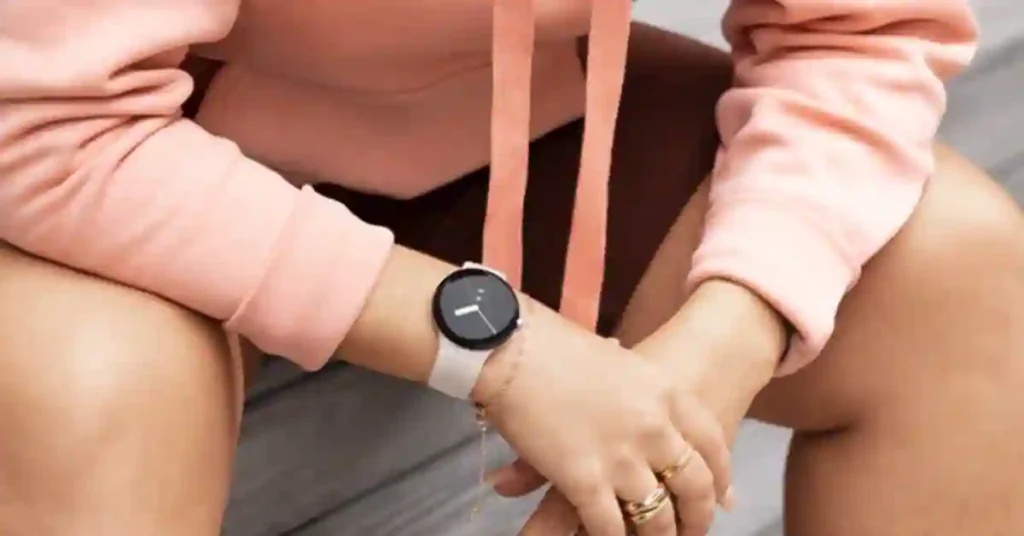
The Pixel Watch now comes in two sizes for a better fit. Expect battery life of about 24 hours, similar to an Apple Watch. Pricing starts around $349 and goes up based on options.
This is best for Android users who want a whole watch experience with apps, notifications, and fitness built in, and who are fine with charging daily.
Full smartwatch integration
- AMOLED screen that looks crisp indoors and outdoors
- Google Assistant for voice, smart home, and quick actions
- Deep app support, from Gmail and Calendar to Maps and Wallet
- LTE option for phone-free calls and messages
Health tracking and fitness Features
- ECG, heart rate tracking, SpO2, step, and sleep tracking via Fitbit
- Two case sizes improve comfort and style
- Bold design that rivals the Apple Watch
- 24 hours of power per charge in typical use
Quick guide: choosing by your goals
Use this simple cheat sheet to make the best decision in 2026.
- Goal: Basics and getting active → Inspire 3
- Goal: Runs and gym with training tools → Charge 6
- Goal: Smartwatch on a budget → Versa 4
- Goal: Deep wellness insights → Sense 2
- Goal: Full smartwatch power and apps → Pixel Watch 3
My personal pick: Charge 6 for most people. It balances tracking, accuracy, and everyday convenience.
A few buying tips:
- If you want an accurate outdoor distance, get a device with built-in GPS.
- Use Active Zone Minutes to guide weekly activity intensity.
- Your sleep and recovery data matter as much as your workout stats.
- Don’t overthink settings. Choose a device that helps you stay consistent.
Final thoughts -Which one is Best Fitbit in 2026
Choosing the right Fitbit in 2026 ultimately comes down to how you plan to use it.
If you want the most balanced fitness tracker with practical training tools, the Fitbit Charge 6 remains the best choice for most people. It’s compact, accurate, feature-rich, and stays focused on fitness without unnecessary distractions.
If you prefer full smartwatch capabilities—apps, LTE, voice support, and an immersive display—the Google Pixel Watch 3 is the premium option, provided you are comfortable with daily charging.
If affordability is your priority, the Fitbit Inspire 3 continues to offer reliable tracking, excellent battery life, and a simple, distraction-free experience.
If deep wellness insights matter most, including advanced stress, heart rhythm, and recovery data, the Fitbit Sense 2 delivers the most complete health monitoring package in Fitbit’s lineup.
Still unsure which one fits your lifestyle or activity goals? Feel free to ask in the comments—I’m here to help you decide.
Latest update: The Fitbit Charge 7 may be arriving later than expected. You can explore my full coverage and the latest signals in the updated guide on the Fitbit Charge 7.

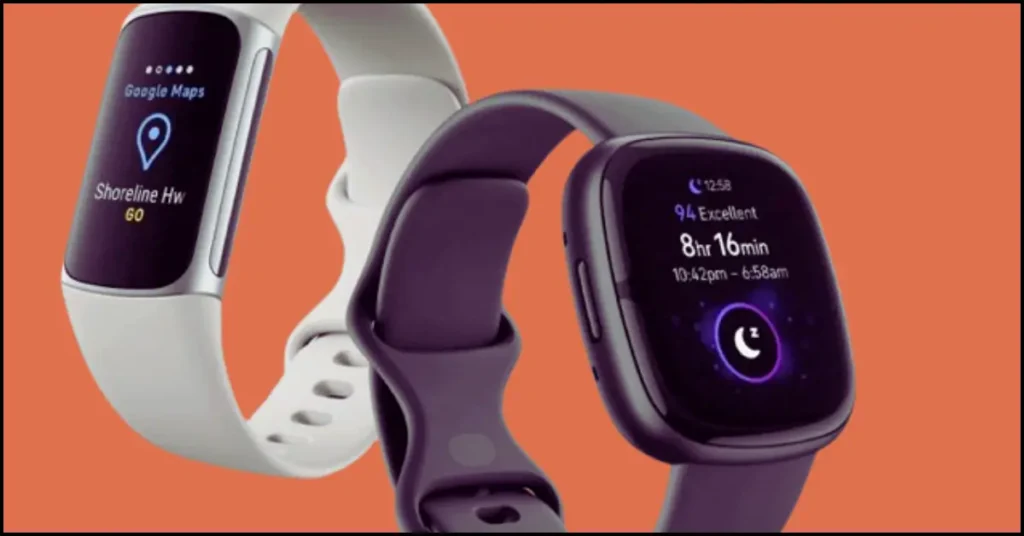



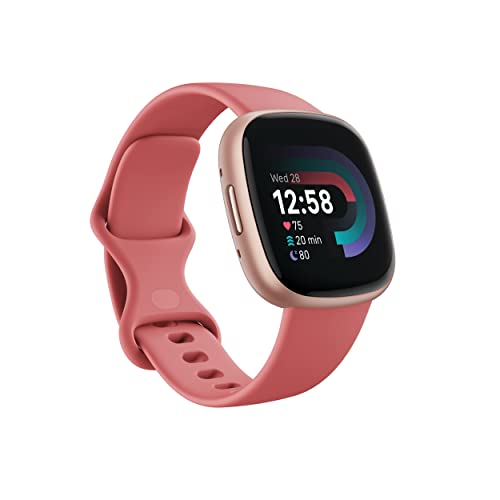


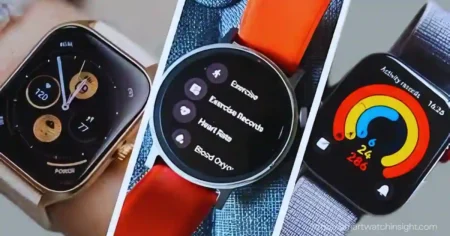
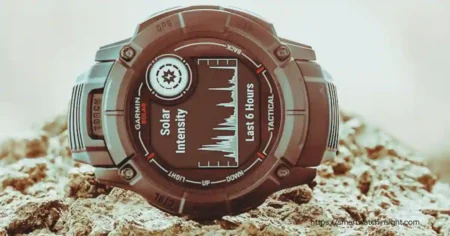
![11 Best Affordable Fitness Trackers Under $100 — Reviews & Buying Guide 2026 Best Fitness Trackers Under $100 (Tested & Reviewed) [2025]](https://smartwatchinsight.com/wp-content/uploads/2024/12/best-smart-watch-under-100-1-450x236.webp)
